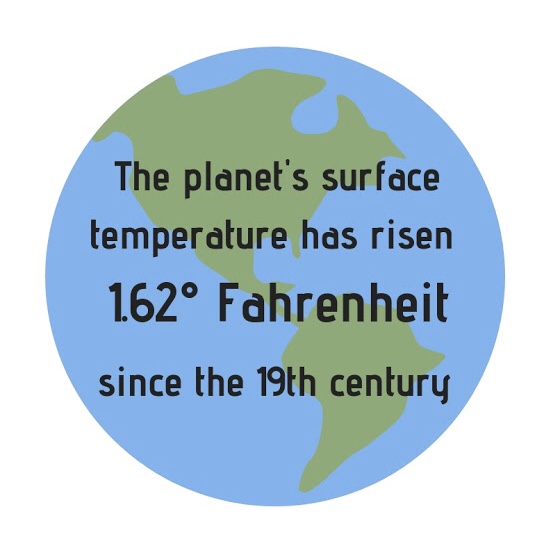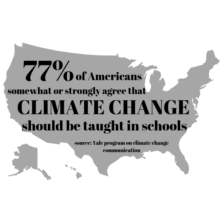
This past summer, locals faced record temperatures ranging from high 90s to 100s. Countries all over the world experienced their hottest months, making July the hottest month ever globally.
Despite the apparent change in the climate, the Trump Administration has consistently attempted to repeal various American environmental laws, 85 according to the New York Times. Policies repealed range from air and water pollution prevention to California’s strict car emission standards.
Citizens often stage protests in response to these environmental policy drawbacks. Junior Roshni Sahu addresses a hurdle these protests face.
“It’s really easy for the government to dismiss what the public thinks about climate change. We can have rallies, we can have strikes, but it’s really up to the government to take the initiative,” Sahu said. “It’s a kind of a disconnect in the sense that we [are not] able to enforce it as much as we want to for change.”
The Trump Administration has also withdrawn the United States from the Paris Climate Agreement, a multinational treaty to reduce greenhouse gas emissions and the global temperature increase.

Senior Justin Huang is a member of the Citizens of Climate Change Lobby (CCL) and the founder of the organization’s Aragon chapter.
“The [Paris Climate Agreement] is an agreement, it’s not quite a policy,” Huang said. “It’s a good thing, but I feel like it should go farther … [when] even something as small as an agreement between countries the president cannot agree to, I think it’s indicative that … some of the US does not believe in climate change.”
Foreign countries have responded to climate change differently. In May 2019, the U.K. government declared a climate emergency, the first country in the world to do so. Other countries have also turned to more renewable energy sources.
“Starting in the 1970s, France did utilize nuclear power and [in] the United States and Eastern Europe … nuclear power has a bit of a stigma associated with accidents, like Three Mile Island and Chernobyl, but those are actually really rare,” said senior Franklin Lee, president of Aragon’s LEAP Club. “A lot of countries are preferring nuclear power, because it’s a lot more high yield. And it’s a lot cheaper to implement than say, solar and wind power.”
However, Lee describes how America has factors preventing the move towards sustainable energy sources.
“We already have infrastructure built up around fossil fuels, we already have coal power plants, we already have oil power plants. A lot of those, are federally subsidized, which means that the government spends a lot of money to keep those open,” Lee said. “It’s a lot easier to use existing infrastructure than to build new infrastructure. Building new solar plants with a new hydroelectric dam is a lot more expensive than simply using … natural gas.”

On the other hand, there are proposed Congressional bills promoting awareness and prevention of climate change. One notable example is the Green New Deal: a proposed method for the US federal government to move away from greenhouse emissions and create jobs in clean energy industries.
Huang explains the low probability of the Green New Deal being passed.
“Basically you’ve got [the] right, [and] switching to green energy, limiting … fossil fuel energy, [and] … providing welfare and jobs further for lower class people,” Huang said. “It’s exactly what the right doesn’t want. And with a red Senate, a red Supreme Court and a red executive branch, there’s no way it’s going to pass.”
Huang describes the advantages of an alternative, the Energy Innovation and Carbon Dividend Act, which proposes a fee on carbon as a motivation for renewable energy.
“Where does the money generated by this tax go? The money generated by the tax will be split up and then given to every American family with a social security number of in dividends, so it’s a market based solution, mean[ing] it’s not taking away carbon, it’s just incentivizing green energy,” Huang said. “And money generated by the tax then goes back to the American people to spend it, for what they want.”
Huang sees a better chance of the Energy Innovation and Carbon Dividend Act passing because it compromises more than the Green New Deal.
“[The] HR 763 EICDA … [is] not limiting anyone and that’s what the right wants,” Huang said. “They don’t want [the] government to stop them from buying [fossil fuels] … it’s just priced higher. The dividend also encourages stimulation of the economy. It is more progressive, but it appeals more towards everybody than the Green New Deal.”
A compromise is needed to convince the government to pass bills to protect our Earth and unless something changes, our climate will continue to deteriorate.



